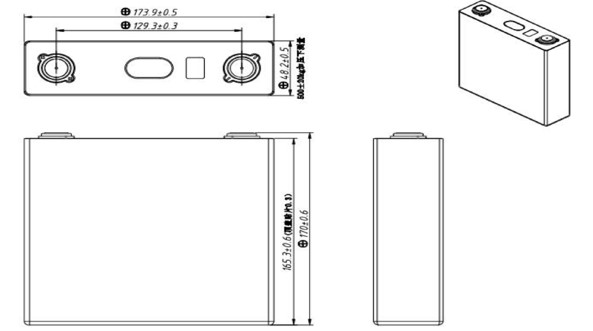Copyright All Rights Reserved. wtech.cc


With the development of lithium battery technology, lithium batteries are used more and more in the field of energy storage, and the application fields of lithium energy storage batteries are becoming wider and wider. But what you may not know is, which type of energy storage lithium battery is more suitable. What’s good?
Because the cells used in energy storage lithium batteries include lithium iron phosphate batteries, cylindrical steel case lithium-ion batteries, and soft-packed polymer lithium batteries, which one is better?
First of all, in terms of packaging, there are three types of energy storage lithium battery cells, one with a cylindrical steel shell, one with a square aluminum shell, and one with a soft aluminum film.
For these three types of packaging, for the same type of lithium battery, under the fixed battery compartment space of the product design, the soft-pack lithium battery can have the lightest weight and the largest battery capacity, but the price is relatively more expensive, while the square aluminum battery The shell and the round steel shell are second in capacity, and the steel shell is the heaviest in terms of weight. It is not an ideal choice for products that require lightweight.
In terms of space utilization, soft packages are the best, and steel cases are the worst. when
However, the steel shell is the cheapest in terms of price.
Lead-acid battery energy storage battery
The use of lead-acid batteries as energy storage batteries has a long history, mainly because lead-acid batteries were invented earlier and the technology is relatively more mature. Of course, its cheap manufacturing cost is also one of the most popular factors, but it also has its own characteristics. Big shortcomings, such as the lowest energy density per unit volume and the heaviest weight. In addition, it is relatively small in providing rate discharge, and the power it provides often cannot meet the demand. In addition, its production and manufacturing materials are not suitable for It is very harmful to the environment and human body. Under the national promotion of environmental protection and sustainable development, it is constantly being replaced by lithium battery applications.
In terms of the economic benefits of energy storage batteries, soft-packed polymer lithium batteries are the most expensive and the most unstable in terms of safety performance. This is why the batteries used in many new energy vehicles today are not polymer lithium batteries.
Despite this, it is ideal to choose polymer lithium batteries for some energy storage batteries that pursue lightweight weight.
For example, some electronic equipment used for outdoor exploration or work requires energy storage batteries tha provide backup power to be as light and small as possible. Therefore, polymer lithium batteries are not an ideal choice for energy storage batteries used in daily life.
In the field of energy storage battery applications, lithium iron phosphate batteries may be the most widely used in the future. Why is this? Let’s first understand the various advantages of lithium iron phosphate batteries.
First of all, in terms of temperature resistance, lithium iron phosphate batteries are the most high-temperature-resistant batteries among all energy storage batteries, laying a certain foundation for safety and stability.
In terms of providing high current discharge, although it is slightly worse than polymer lithium batteries, it is much better than lead-acid batteries. Therefore, the batteries used by many smart cargo trucks or robots used in warehousing and logistics are basically lithium-iron phosphate batteries.
Thirdly, in terms of environmental protection, lithium iron phosphate batteries are environmentally friendly and pollution-free. They use raw materials from a wide range of sources and are good products for sustainable development.
Finally, in terms of electrochemical performance, such as battery capacity, energy density, cycle life, etc., they are far better than lead-acid batteries.
After the above battery comparison, I believe everyone should have a basic understanding of which battery is best for energy storage battery.
Written by: FUJIREJA SOLAR EQUIPMENT GROUP
The Exporter and Manufacturer of Solar Energy Storage, Inverters
Welcome OEM ODM
https://wtech.cc/